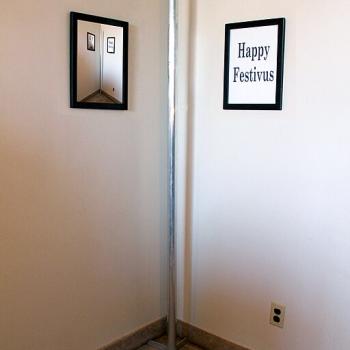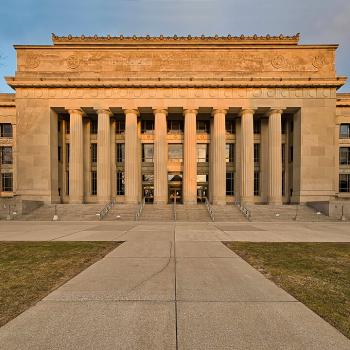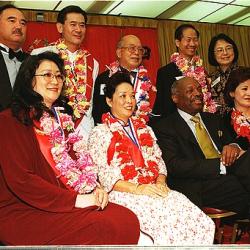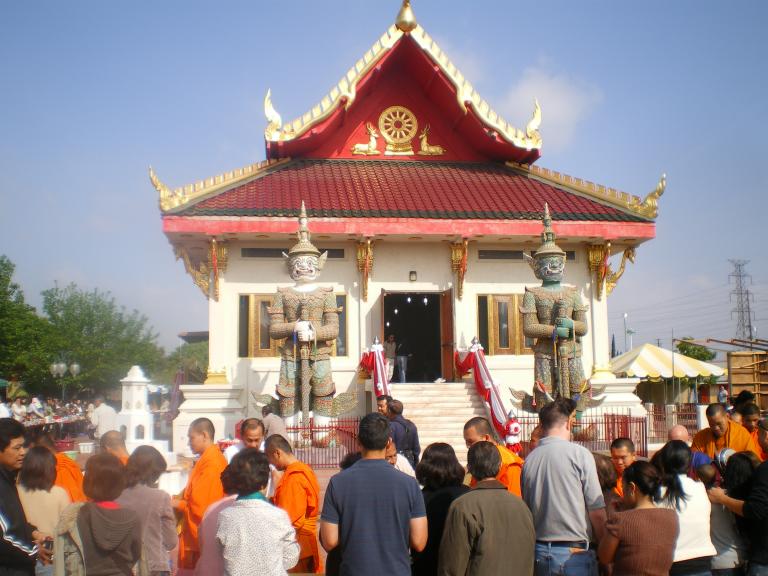
When I was conducting oral history interviews for my current book project about Hmong refugee resettlement, I had the opportunity to meet a vivacious woman named Dorothy, who lived in Saint Paul, Minnesota. The granddaughter of Norwegian immigrants and the daughter of a Lutheran minister, Dorothy was born in her church’s parsonage and maintained a deep commitment to church involvement throughout her entire life. At the same time, she was intensely curious about the other ethnic and religious groups that lived around her. She recounted how, as a child, she had attended borscht suppers put on by a Russian Baptist church and had befriended a Chinese exchange student and a Native American girl; as an adult, she aided Protestant, Catholic, and Jewish Displaced Persons arriving in New York after World War II. Later, when Hmong refugees began to resettle in the Twin Cities in the late 1970s and were changing the city around her, she was eager to befriend and help her new neighbors adjust to life in the United States.
Over time, she developed close relationships with a few local Hmong families and found herself present for some of their most intimate moments, including births, illnesses, and funerals. And because the families she had befriended were not Christian—they practiced traditional Hmong rituals, including shamanism—cultivating an interreligious and intercultural friendship with them was a particularly eye-opening, heart-widening experience for her. “There’s no better way to learn about a culture than to have a friend who is of that culture,” she said. She eventually became knowledgeable about different Hmong rituals, including the hu plig and funeral ceremonies, and she considered welcoming Hmong refugees, learning about their traditions, and being part of their cultural and spiritual lives to be part of the responsibilities of a good friend and neighbor. “It’s Biblical,” she said. “Love thy neighbor. And who is my neighbor?” She laughed. “Well, look around!”
Conversations about the importance of diversity in our schools, neighborhoods, workplaces, and governments often focus on race, ethnicity, class, gender, sexual orientation, and even political party. But what about the religious diversity of our social networks? To what degree do Americans have relationships with people who believe, pray, and worship differently? And why should Americans care about living, studying, working, and governing with people of different faiths?
A report by the Pew Research Center that was published last month suggests that the religious diversity of our social networks matters quite a bit. Pew’s findings, which dovetail with those of other studies, suggest that religiously diverse networks can help address religious intolerance and hatred.
Religious hostility unfortunately remains an enduring reality in the United States. FBI statistics show that hate crimes are on the rise, including religiously-motivated hate crimes, and recent high-profile attacks against Jews and Muslims make clear that religious minorities remain a target for acts of intimidation and horrific violence. The roots of this hatred are complex, as are the potential ways that both government and civil society can address this problem and ensure the freedom and security of religious minorities.
However, one possible starting point for confronting religious hostility is to improve religious literacy and to encourage Americans to develop relationships with people of diverse religious backgrounds, which research suggests are both linked to increased levels of tolerance and acceptance. The idea, though simple, is powerful: Knowing people of different religions makes it possible for us to understand people of different religions, and understanding people of different religions makes it possible to get along with people of different religions. In short, knowing and understanding our neighbors is one step we can take to better loving our neighbors.
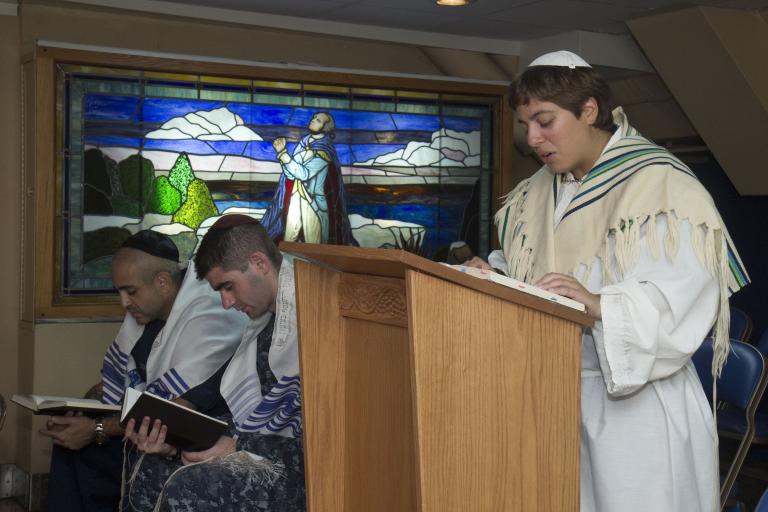
The Link between Relationships, Knowledge, and Attitudes
According to the last month’s Pew report, having diverse religious networks correlates with having higher levels of religious knowledge. Surveying 11,000 Americans, Pew asked respondents if they had a personal relationship with people who identified as evangelical Christian, Catholic, Mormon, Jewish, Muslim, atheist, Buddhist, Hindu, or mainline Protestant. Pew found that respondents who knew people of a particular religion were able to correctly answer more questions about that religion. For example, 76% of respondents who said that they know somebody who is Muslim knew that Ramadan is an Islamic holy month; in contrast, among respondents who do not know a Muslim person, only 46% knew that fact about Ramadan. Similarly, 71% of those who said that they know somebody who is Hindu knew that yoga has origins in Hinduism, while only 43% of the people who do not know a Hindu person knew the Hindu roots of yoga. Overall, Pew found that respondents who knew people from seven or more different religions scored highly on the religious knowledge quiz and answered, on average, 19 questions correctly. Meanwhile, those who had less diverse religious networks and knew people from three or fewer religions scored much lower one the quiz and answered, on average, only 8.6 questions correctly.
Pew also found that higher levels of religious knowledge were linked to more positive attitudes towards different religious groups. Using a “feeling thermometer” in which a 0 rating expressed cold and negative feelings and 100 expressed warm and positive feelings, Pew asked respondents to rate different religious groups. The survey found that the respondents who possessed more knowledge about a religion that was different from their own tended to have warmer views of the people who identified with that religion. As Pew explained,
Those who are most knowledgeable about a religion (and are not members of that religion) tend to rate the religion’s adherents most favorably. For instance, Buddhists receive an average thermometer rating of 67 degrees from non-Buddhists who correctly answer both of the survey’s Buddhism-knowledge questions correctly, but just 53 degrees from those who answer neither Buddhism-knowledge question correctly. The average rating given to Hindus is 11 degrees warmer among those who know a lot about Hinduism than among those who know little about Hinduism. Moreover, higher scores on the overall (32-point) religious knowledge scale tend to be associated with warmer evaluations of most religious groups. Jews, for instance, receive an average thermometer rating of 70 degrees from non-Jews who answer 25 or more religious knowledge questions correctly, compared with just 54 degrees from those who answer eight or fewer questions correctly.
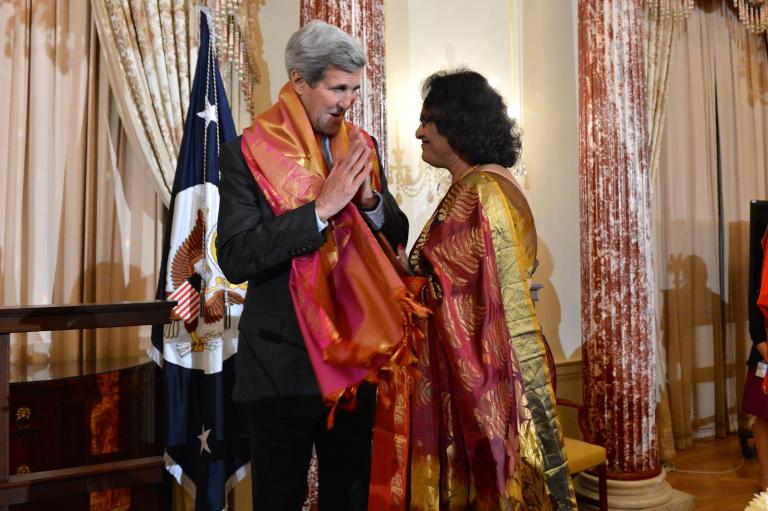
The Aunt Susan Principle
These findings from last month’s Pew report dovetail with other research. For example, in their book American Grace: How Religion Divides and Unites Us, the political scientists Robert Putnam and David Campbell explored how “America peacefully combines a high degree of religious devotion with tremendous religious diversity.” At the center of their work is a puzzle: “How can religious pluralism coexist with religious polarization?”
The answer, in their view, lies in religiously diverse social networks. They explained,
Most Americans are intimately acquainted with people of other faiths. This, we argue, is the most important reason that Americans can combine religious devotion and diversity. We call it the ‘Aunt Susan Principle.’ We all have an Aunt Susan in our lives, the sort of person who epitomizes what it means to be a saint, but whose religious background is different from our own. Maybe you are Jewish and she is Methodist. Or perhaps you are Catholic and Aunt Susan is not religious at all. But whatever her religious background (or lack thereof), you know that Aunt Susan is destined for heaven. And if she is going to heaven, what does that say about other people who share her religion or lack of religion? Maybe they can go to heaven too.
To put the Aunt Susan Principle in more technical terms: We are suggesting that having a religiously diverse social network leads to a more positive assessment of specific religious groups, particularly those with low thermometer scores. In offering this hypothesis, we can look beyond our hypothetical Aunt Susan for reasons to think that religiously diverse social networks do indeed have a positive effect on interreligious acceptance. One place to find such a rationale is in the literature on social capital, by which we mean the norms of trust and reciprocity that arise out of our social networks. Some social capital consists of bonding, or interconnections among people with a common background. Other social capital is bridging in nature, and thus connects people of different backgrounds. While both bonding and bridging each serve different purposes, bridging is vital for the smooth functioning of a diverse society. When birds of different feathers flock together, they come to trust one another.
The real world offers compelling examples of the power of the Aunt Susan principle. For example, a 2019 poll conducted by the Institute for Social Policy and Understanding (ISPU), an organization that researches Muslims in the United States, found that when people have personal relationships with Muslims, Islamophobia declines.
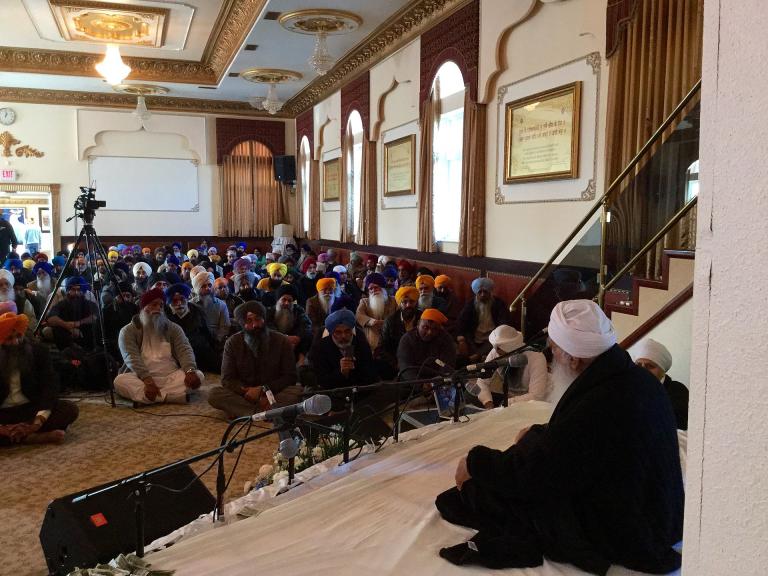
The Limited Religious Diversity of Americans’ Social Networks
Unfortunately, that same poll by the ISPU found that many Americans do not have personal relationships with Muslims. The ISPU found that while three in four American Jews know somebody who is Muslim, only one in three white evangelicals in the United States knows a Muslim.
These findings point to a bigger problem that limit the positive and pluralistic attitudes made possible through the Aunt Susan Principle: the fact that even though many Americans know and love somebody who is of a different religion, those interreligious relationships can be somewhat narrow. Presbyterians might have friends who are, say, Lutheran or Unitarian, but they have fewer personal relationships with members of the groups that are marginalized and often vilified.
In a survey conducted by the New America Foundation last year, researchers found that 40% of its respondents did not personally know a Muslim person, at the same time that they respondents grossly overestimated the number of Muslims in the U.S. Similarly, a 2014 Pew study found that only 38% of Americans personally knew a Muslim person. The numbers were even worse for other groups: only 23% of the people surveyed personally knew a Buddhist, and 22% personally knew a Hindu. And then, of course, there are the groups that are not included in the Pew surveys—for instance, adherents of Asian and indigenous traditions whose beliefs and practices fall so far beyond the Christian-centric definition of religion that they are not even considered legitimate religions by some people.
Importantly, the limited scope of Americans’ interreligious relationships is not simply an accident; the lack of religious diversity in Americans’ social networks and the religious homogeneity of communities is in part a choice. Time and again, Americans—even those who profess to value religious freedom, tolerance, and diversity—have made efforts to exclude religious others. We see this clearly when considering attitudes about plans to build non-Christian houses of worship. In his book America and the Challenges of Religious Diversity, the sociologist Robert Wuthnow found that while four in ten Americans said that they would not be bothered by plans for a mosque to be built in their town, four in ten Americans said that it would bother them. Only one in six Americans would actually welcome the mosque. The reception for a Hindu temple was slightly warmer, but still, over one in three Americans said they would be bothered by the temple, and, as with attitudes about the mosque, only one in six Americans said that they would welcome the Hindu temple.
Wuthnow’s survey findings echo real life examples of how Americans have actively worked to prevent the presence of non-Christian communities in their neighborhoods and cities. Across the country, people have used zoning laws and lobbied local governments to prevent the building of new houses of worship, as was the case when Sikhs in North Hills, California, tried to transform a home into a gudwara, and when Vietnamese Buddhists tried to establish Chua Quan Am, a “home temple” in Garden Grove, California. Plans for mosques have caused controversies all across the country—for example, in Murfreesboro, Tennessee; St. Anthony, Minnesota; Quincy, Massachusetts; and Edmond, Oklahoma. And even if groups have secured local government approval for building a house of worship, religious groups have faced intimidation from their neighbors. In Sayreville, New Jersey, for instance, efforts by the local Hindu community to transform a former YMCA into a temple caused opponents to spray paint “Get out Hindoos” and “KKK” on the proposed temple site.
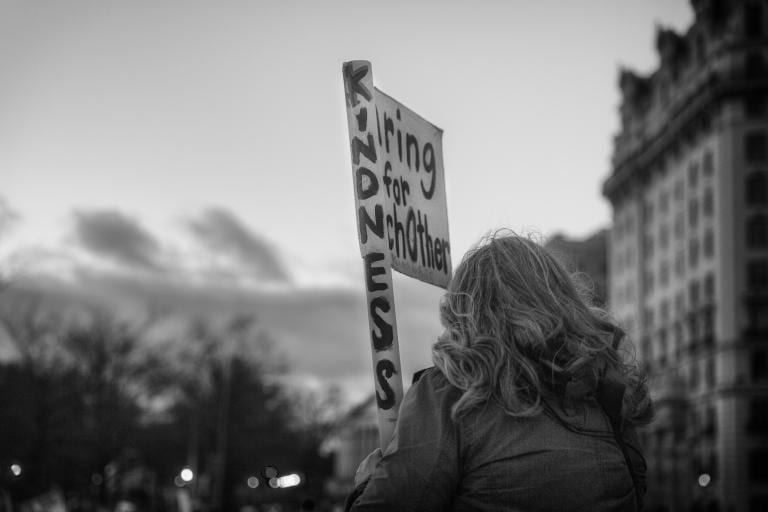
In 1962, Martin Luther King, Jr., spoke at King Chapel at Cornell College in Mount Vernon, Iowa and famously declared, “… I am convinced that men hate each other because they fear each other. They fear each other because they don’t know each other, and they don’t know each other because they don’t communicate with each other, and they don’t communicate with each other because they are separated from each other.”
He was speaking about racial segregation, but the point applies to religion, as well. Americans fear religious others because they do not know religious others; they do not know religious others because they are separated from religious others. Thus, it is worth asking all Americans: Do you, like Dorothy in Saint Paul, know your neighbors, especially those who are different from you? Or do you separate yourselves from them? What can you do, today, to better understand your neighbors? To have personal relationships with your neighbors? In other words, to truly love your neighbors?







